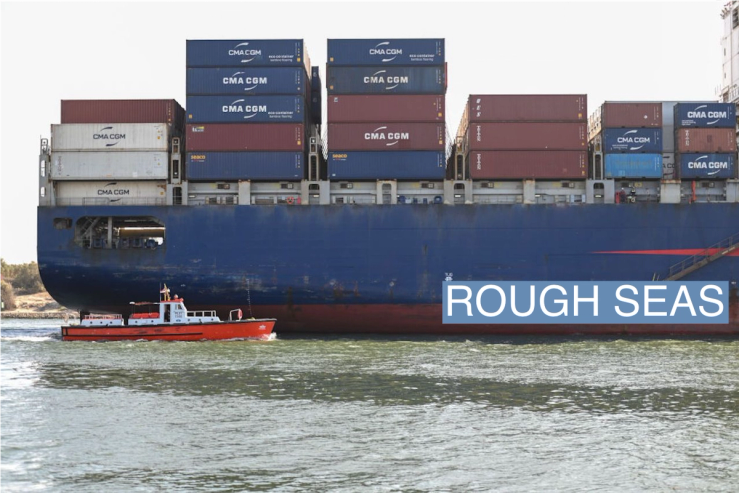The News
Two missile attacks damaged a Greek-flagged cargo ship in the Red Sea on Tuesday.
No group has yet taken responsibility for the strike, but it occurred in an area that has experienced repeated attacks by Yemen’s Houthi militia, which has targeted ships in the area it says in retaliation for Israel’s bombardment of the Gaza Strip.
The Houthis have attacked, and in some cases, hijacked more than 40 ships in the Red Sea and Gulf of Aden since Israel’s war in Gaza began. Some 15% of global sea trade and $1 trillion worth of goods passes through the Red Sea ordinarily, but many shipping companies have altered their routes to avoid it.
SIGNALS
Multiple crises disrupting shipping sector are rare
Aside from the threat of Houthi attacks in the Red Sea, shipping companies are grappling with various geopolitical crises. Pirate attacks near Somalia are on the rise, while fears are growing of a potential Iran attack on vessels in the Strait of Hormuz. Meanwhile, the Panama Canal has been hit with drought, and European ports are overstuffed with Chinese imports, the Financial Times reported. These are “real black swan events,” Jan Rindbo, chief executive of Norden, told the FT. “I’ve never in my 30 years in shipping seen anything like this.” One executive predicted things will become even more “dysfunctional” ahead of the Christmas season before they get better.
Alternate routes significantly increase shipping times
Ships are being redirected around the Cape of Good Hope, which follows the southern tip of the African continent. The detour adds one to three weeks on average to typical shipping times. “Shipping costs have spiked, sometimes doubling or tripling, and needless to say, missiles being fired into a primary global trade route dramatically raises risk and uncertainty, which dampens business activity,” Stephen Olson, a senior adjunct fellow at Pacific Forum International told the World Economic Forum in February. As a result, he said, “logistics managers are operating in crisis mode.”




